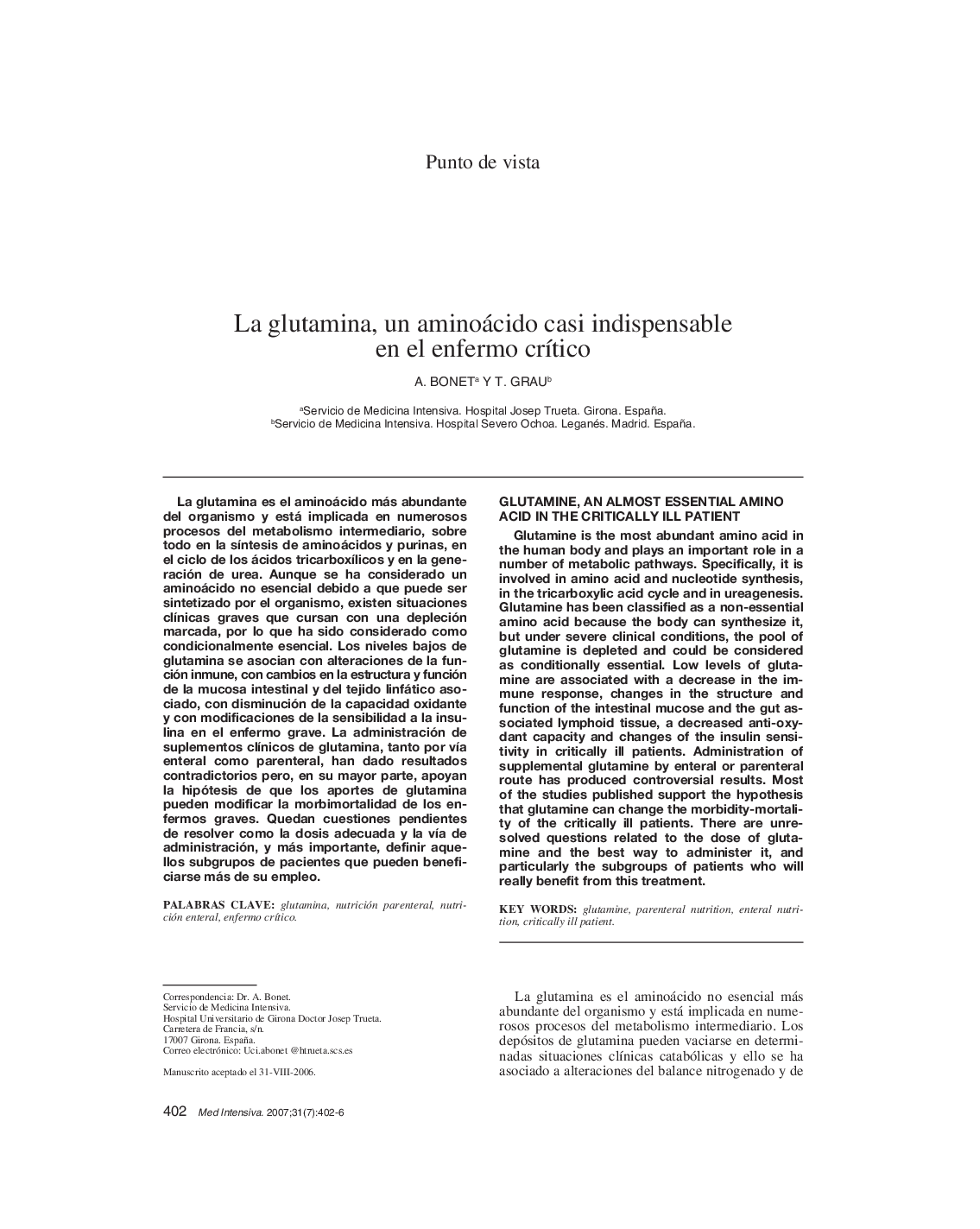| Article ID | Journal | Published Year | Pages | File Type |
|---|---|---|---|---|
| 3113757 | Medicina Intensiva | 2007 | 5 Pages |
Abstract
Glutamine is the most abundant amino acid in the human body and plays an important role in a number of metabolic pathways. Specifically, it is involved in amino acid and nucleotide synthesis, in the tricarboxylic acid cycle and in ureagenesis. Glutamine has been classified as a non-essential amino acid because the body can synthesize it, but under severe clinical conditions, the pool of glutamine is depleted and could be considered as conditionally essential. Low levels of glutamine are associated with a decrease in the immune response, changes in the structure and function of the intestinal mucose and the gut associated lymphoid tissue, a decreased anti-oxydant capacity and changes of the insulin sensitivity in critically ill patients. Administration of supplemental glutamine by enteral or parenteral route has produced controversial results. Most of the studies published support the hypothesis that glutamine can change the morbidity-mortality of the critically ill patients. There are unresolved questions related to the dose of glutamine and the best way to administer it, and particularly the subgroups of patients who will really benefit from this treatment.
Keywords
Related Topics
Health Sciences
Medicine and Dentistry
Critical Care and Intensive Care Medicine
Authors
A. Bonet, T. Grau,
